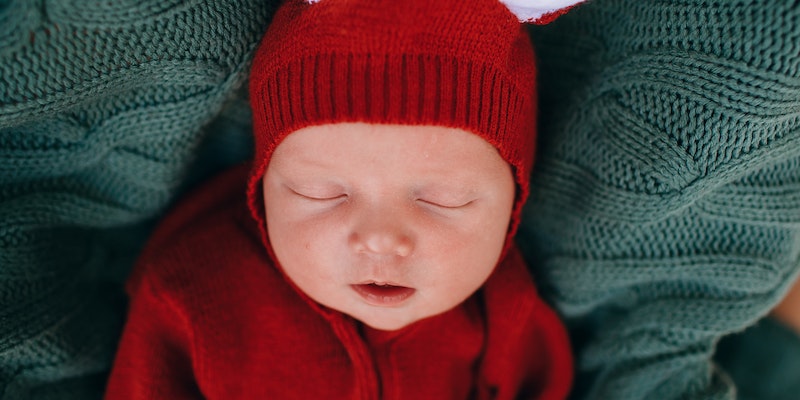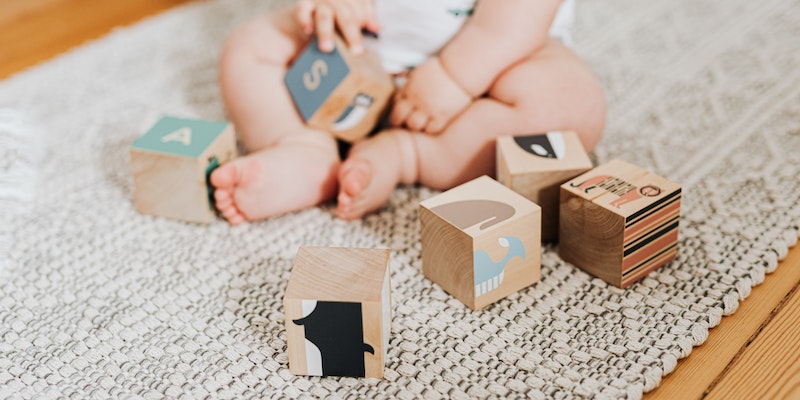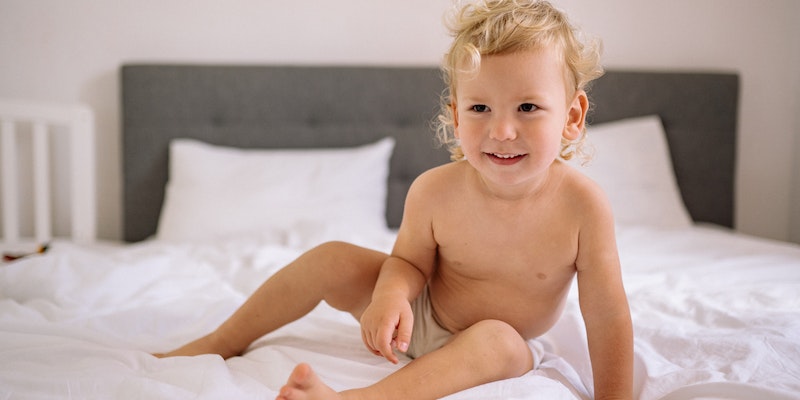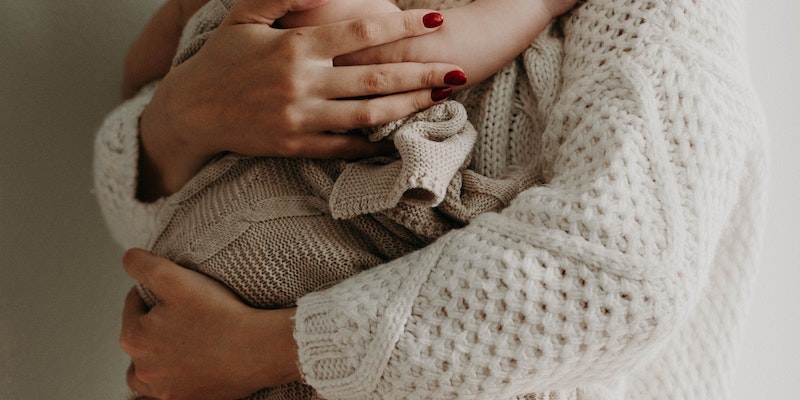Oeko-tex is an independent testing agency that tests products for harmful substances increasingly used for baby and kids’ clothes.
Companies that have products that are crafted from a natural or synthetic fabric can both apply for this standard to certify their products.
Purchasing certified products such as baby clothes with labels like Oeko tex is increasingly in demand as many families are looking for non-toxic baby clothes.
What are Oeko-tex-certified baby clothes mean?
If the products you buy are Oeko-tex certified, this can mean a variety of things, as there are multiple Oeko-tex certifications.
Yet, the most commonly used Oeko-tex certification used for baby clothes is the Oeko-tex standard 100.
And baby clothes certified with the OEKO-TEX STANDARD 100 have been scientifically tested for harmful toxins and are a safer and better choice for your family’s health.
To break this down into details, this means that the Oeko-tex standard 100 labels certify that every component of the product, from the fabric to the accessories to the thread, has been thoroughly tested against a list of up to 350 toxic chemicals.
What are the other Oeko-tex certifications besides Oeko-tex standard 100?
Besides the most commonly used Oeko-tex standard 100, Oeko also has a variety of additional certifications you can certify with, which you can find a list of underneath. Yet, these labels are far less common and generally not seen in baby and kids’ clothes collections.
- OEKO-TEX LEATHER STANDARD–have has been scientifically tested for the presence of harmful substances
- OEKO-TEX MADE IN GREEN– Textiles and leather that are produced more sustainably in socially responsible workplaces.
- OEKO-TEX STeP and DETOX TO ZERO– set the highest standards for social and environmental aspects of textile and leather production.
- OEKO-TEX ECO PASSPORT-This standard test against strict criteria for a lower environmental impact.
- OEKO-TEX RESPONSIBLE BUSINESS– prevents or mitigates existing and potential negative impacts of business operations within your activities, supply chains and other business relationships.
Are Oeko-tex and GOTS the same?
As you may know, Oeko-tex and GOTS are the two most common standards seen and used in baby and kids’ clothes.
However, both standards are excellent, well-reviewed standards that test for harmful substances in fabrics and products; they are not the same.
Oeko-tex standard 100–
As mentioned before, Oeko tex has several standards. And although Oeko tex has standards several standards, as Oeko-tex is made Green, which focuses specifically on sustainability and eco-friendly values, the Oeko-tex standard 100 exclusively tests for harmful toxins.
Oeko-tex standard 100 especially test for harmful substances to provide safer clothing but has no environmental and ethical guidelines.
GOTS–
GOTS, on the other hand, does have environmental and ethical guidelines for the organic-certified brands and factories they work with.
Some requirements include paying fair living wages and water waste management guidelines. National to the GOTS restrictions that only organic fibres can certify for this standard.
How is Oeko-tex used in baby and kids’ clothes?
When browsing for baby clothes brands that use Oeko-tex standard 100, remember that not all brands certify their end product with Oeko-tex standard 100.
Some brand use Oeko-tex-certified fabric for their clothing, yet keep in mind that this is different to brands that certify their end product with Oeko-tex standard 100.
- Which baby brands use Oeko-tex standard 100 for their baby clothes?
- Sustainable baby clothes brands in Australia with Oeko-tex 100
What is Oeko-tex-certified Bamboo?
Oeko-tex-certified bamboo is often used when people refer to a bamboo viscose certified with Oeko-tex 100 and test for harmful substances.
Only Very few bamboo baby brands in the U.S. have bamboo baby end products that are Oeko-tex standard 100 certified. At the same time, a few brands also use Oeko-tex standard 100 bamboo fabric for their baby clothes collections.
Yet, keep in mind that brands still can details such as zippers, dyes and, additionally, the clothing is the end product is not certified with Oeko-tex standard 100.
Final thoughts for What is Oeko-tex certified?
Baby clothes brands increasingly use Oeko-tex to respond to society’s demand for non-toxic baby clothing.
However, GOTS is the most commonly used label that tests for harmful toxins in clothing; Oeko-tex is perfect for non-organic fibres, yet keep in mind that Oeko-tex clothing is not organic.
Oeko tex is an excellent opportunity for the bamboo brands, which are a popular sleepwear choice and not eligible to certify with GOTS. However, bamboo brands can certify with Oeko-tex standard 100.
What is your favourite baby clothing brand that is Oeko tex certified?
What is Nestig?-(A certified and safe brand?)
What is Nestig? While browsing for non-toxic cots and furniture for your baby’s nursery, you…
What is Aster and Oak?
When browsing for premium baby clothes in Australia, you may have come across Aster and…
Does Nestig Ever have Sales?
Nestig is an exciting brand if you are searching for durable, non-toxic baby nursery gear,…
Are Seventh-Generation Diapers Biodegradable?
Seventh Generation diapers are the first USDA Certified Biobased diapers made with 30% biobased ingredients. With…
Is Angel Dear Organic?
Is Angel Dear Organic? Jeffrey Chang founded the high-end children’s wear brand Angel Dear in…
Are Healthy Nest Diapers Worth It?
Before Healthy Nest diapers were brought to the market, Shaze Visram launched Happy Family Organic…






